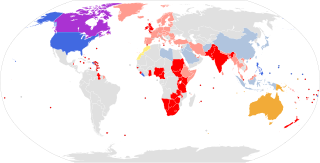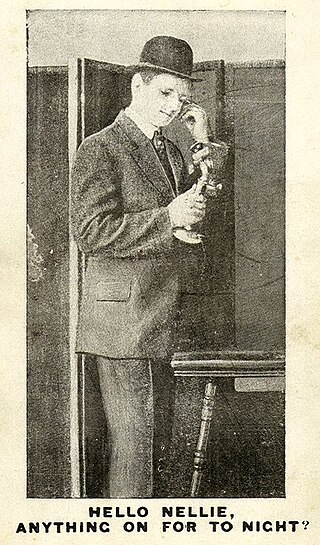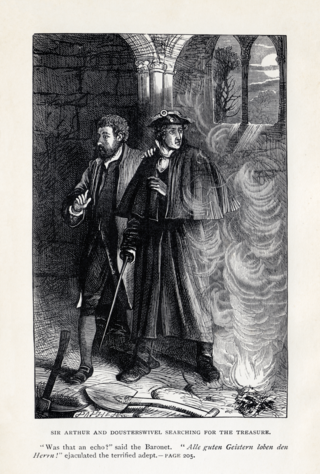
Angst is fear or anxiety. The dictionary definition for angst is a feeling of anxiety, apprehension, or insecurity.

A dictionary is a listing of lexemes from the lexicon of one or more specific languages, often arranged alphabetically, which may include information on definitions, usage, etymologies, pronunciations, translation, etc. It is a lexicographical reference that shows inter-relationships among the data.
Skepticism, also spelled scepticism in British English, is a questioning attitude or doubt toward knowledge claims that are seen as mere belief or dogma. For example, if a person is skeptical about claims made by their government about an ongoing war then the person doubts that these claims are accurate. In such cases, skeptics normally recommend not disbelief but suspension of belief, i.e. maintaining a neutral attitude that neither affirms nor denies the claim. This attitude is often motivated by the impression that the available evidence is insufficient to support the claim. Formally, skepticism is a topic of interest in philosophy, particularly epistemology.
Truth or verity is the property of being in accord with fact or reality. In everyday language, it is typically ascribed to things that aim to represent reality or otherwise correspond to it, such as beliefs, propositions, and declarative sentences.

A Dictionary of the English Language, sometimes published as Johnson's Dictionary, was published on 15 April 1755 and written by Samuel Johnson. It is among the most influential dictionaries in the history of the English language.

A motto is a sentence or phrase expressing a belief or purpose, or the general motivation or intention of an individual, family, social group, or organisation. Mottos are usually found predominantly in written form, and may stem from long traditions of social foundations, or from significant events, such as a civil war or a revolution. One's motto may be in any language, but Latin has been widely used, especially in the Western world.

A scam, or a confidence trick, is an attempt to defraud a person or group after first gaining their trust. Confidence tricks exploit victims using a combination of the victim's credulity, naïveté, compassion, vanity, confidence, irresponsibility, and greed. Researchers have defined confidence tricks as "a distinctive species of fraudulent conduct ... intending to further voluntary exchanges that are not mutually beneficial", as they "benefit con operators at the expense of their victims ".
Deception is the act of convincing one or many recipients of untrue information. The person creating the deception knows it to be false while the receiver of the message has a tendency to believe it. It is often done for personal gain or advantage. Deception can involve dissimulation, propaganda and sleight of hand as well as distraction, camouflage or concealment. There is also self-deception. It can also be called, with varying subjective implications, beguilement, deceit, bluff, mystification, ruse, or subterfuge.
Webster's Dictionary is any of the English language dictionaries edited in the early 19th century by Noah Webster (1758–1843), an American lexicographer, as well as numerous related or unrelated dictionaries that have adopted the Webster's name in his honor. "Webster's" has since become a genericized trademark in the United States for English dictionaries, and is widely used in dictionary titles.

Honesty or truthfulness is a facet of moral character that connotes positive and virtuous attributes such as integrity, truthfulness, straightforwardness, along with the absence of lying, cheating, theft, etc. Honesty also involves being trustworthy, loyal, fair, and sincere.
A useful idiot or useful fool is a pejorative description of a person, suggesting that the person thinks they are fighting for a cause without fully comprehending the consequences of their actions, and who does not realize they are being cynically manipulated by the cause's leaders or by other political players. The term was often used during the Cold War to describe non-communists regarded as susceptible to communist propaganda and psychological manipulation. A number of authors attribute this phrase to Vladimir Lenin, but this attribution is not supported by any evidence. Similar terms exist in other languages.

Sincerity is the virtue of one who communicates and acts in accordance with the entirety of their feelings, beliefs, thoughts, and desires in a manner that is honest and genuine. Sincerity in one's actions may be called "earnestness".

Despite the various English dialects spoken from country to country and within different regions of the same country, there are only slight regional variations in English orthography, the two most notable variations being British and American spelling. Many of the differences between American and British/English in the Commonwealth of Nations date back to a time before spelling standards were developed. For instance, some spellings seen as "American" today were once commonly used in Britain, and some spellings seen as "British" were once commonly used in the United States.
Naivety, naiveness, or naïveté is the state of being naive. It refers to an apparent or actual lack of experience and sophistication, often describing a neglect of pragmatism in favor of moral idealism. A naïve may be called a naïf.
Oxford spelling is a spelling standard, named after its use by the Oxford University Press, that prescribes the use of British spelling in combination with the suffix -ize in words like realize and organization instead of -ise endings.

Hello is a salutation or greeting in the English language. It is first attested in writing from 1826.

An infidel is a person who is accused of disbelief in the central tenets of one's own religion, such as members of another religion, or irreligious people.
Credulity is a person's willingness or ability to believe that a statement is true, especially on minimal or uncertain evidence. Credulity is not necessarily a belief in something that may be false: the subject of the belief may even be correct, but a credulous person will believe it without good evidence.

This list comprises widespread modern beliefs about English language usage that are documented by a reliable source to be misconceptions.

Sir Arthur Wardour of Knockwinnock Castle is a character in Walter Scott's 1816 novel The Antiquary, a Scottish Tory baronet who is vain of his ancient family but short of money. He is a friend and neighbour of Jonathan Oldbuck, the novel's title-character.












